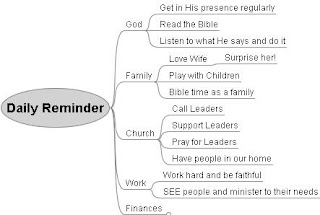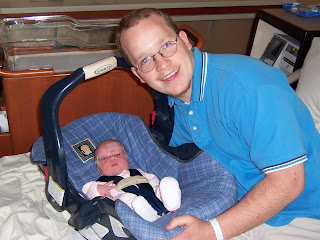I just had to chime in on Billy's and PianoBoy's posts on the school board meeting. I commented on Billy's but needed to take the discussion a little further.
I'll start by blatantly copying and pasting from Billy's post:
The Fourth Amendment to the United Stated Constitution
The right of the people to be secure in their persons, houses, papers, and effects, against unreasonable searches and seizures, shall not be violated, and no Warrants shall issue, but upon probable cause, supported by Oath or affirmation, and particularly describing the place to be searched, and the persons or things to be seized.
Let's talk about the difference between rights and privileges. A right is something that cannot be taken away from you, at least without judicial intervention. For example, you have the right for your house to not be searched, unless a warrant is issued by a judge based on probable cause that the search will turn up evidence of criminal activity. You have the right to life, unless a court of law convicts you of a capital offense. You have the right to liberty, unless you are sent to jail for wrongdoing. Before you are sent to jail, you have the right to counsel, and a jury of your peers. Rights are things the government guarantees you, and only the court system has the ability to act against them, within the limits set by the Constitution.
A privilege is something that is not guaranteed to you by force of law -- it's a "get to." You "get to" obtain and hold a job, by meeting certain qualifications, passing a drug test, maintaining an acceptable standard of behavior, etc. You get to drive a car on public roads, as long as you are a certain age, have passed a driving test, maintain registration on your vehicle, etc. Privileges can be limited. The government could pass a law tomorrow raising or lowering the standard you have to meet in order to "get to" drive or take advantage of anything else that is not guaranteed to you in the Constitution.
I mentioned drug testing to get and hold a job. I totally agree with this -- the funny thing about privileges is you give up your rights somewhat when you choose to enjoy a privilege. This is because the people who have the authority to limit the privilege can impose conditions on it. They are not taking away your rights (for example, to keep your bodily fluids to yourself) because nobody is forcing you to apply for the job.
This is where it gets tricky. The Supreme Court has decided that random drug testing is permissible for a public school student involved in any competitive extracurricular activity or who has a personal parking permit. Technically, students do not have to participate in competitive extracurricular activities, just like teachers don't have to get a teaching job. Technically, students don't need a parking pass -- they can carpool, or walk, or have their parents drop them off at school.
So in a cruel twist of fate, the definitions I've used to frame my argument have forced me into accepting that schools in fact may have the right to perform random drug testing on (take away the rights of) students who participate in unrequired activities.
Now on to why they should not.
In America we have a system of government called a democratic republic. It's a republic because legislation is performed by representatives of the people rather than by the people themselves. It's democratic because those representatives are chosen by common elections, and there are cases where a decision is brought before the people directly (a referendum).
Democratic Republicanism is a horrible way to run a country. Money and time are wasted almost beyond measure. Special interests are subsidized, entitlements strain the ability of the national economy just to service debt, the electorate is appeased and lied to and played for fools. Partisan politics is the rule of the day as scandals abound, drive-by borkings and filibustering mire down any attempt at consensus or progress.
The perfect system of government is a monarchy. A wise and righteous King can speak with authority, cutting through the morass and Getting Things Done. With a word, he can speak justice to the poor, declare peace or war to neighboring nations, and strike fear into the hearts of evildoers.
Unfortunately, a monarchy is also the worst form of human government, because it concentrates so much power in one person that there is a tremendous temptation to abuse one's position. A monarchy with an unwise and unrighteous king is called a dictatorship, the bane of free societies everywhere.
Our Founders understood human nature; they witnessed the abuses of the Americas by the king of England. Their desire was to establish a government of the people, by the people, and for the people. They realized that in order for their new nation to survive free past the first generation they needed to build strong protections into the new Constitution, to prevent abuses of power. They separated the executive, legislative, and judicial powers. They created two legislative houses, one based on population and one equally represented by state.
The Founders limited and decentralized the governments powers to protect the rights of the people. They recognized that, "some people work wisely with knowledge and skill, then must leave the fruit of their efforts to someone who hasn’t worked for it." And, "who can tell whether (our) successors will be wise or foolish? Yet they will control everything(!)"
When considering suppressing the rights of citizens, it is wise to consider what would happen if all the power and information created by our action fell into the hands of evil people. That is exactly what happened in Germany in the last century: The Weimar Government enacted a law in 1928 requiring registration of firearms. The Nazi party used the information gathered by that law in 1933 to sieze firearms from opponents of their regime.
Registering firearms and testing for drugs may be useful, even beneficial. They can be used to prevent problems from occurring. They can also be used to hurt people very badly. Suppose an unscrupulous person doctors a drug test to make it look like an athletic opponent is taking drugs (this could be as simple as slipping something non-harmful into their food). The victim could not only be subject to disciplinary action in the high school, but the record could be leaked and follow them for the rest of their life.
Let's take it a bit further: suppose that the schools decided to screen not just for drugs, but screen DNA for proclivities toward a certain societal deviation, such as violence, gambling, or sexual predation? What if they did background checks to see what our parents or grandparents did? What if they installed cameras and microphones in the locker rooms to make sure nobody was making fun of anybody else's privates?
What if the lives of born or unborn children depended on being a certain sex, or having strong predictors of physical strength, intelligence, or good looks? What if the people making those decisions about children found themselves weak or unhealthy or demented later in life?
What if?
In the case of German citizens, the seemingly benign requirement to register firearms was used to take away one of their defenses against a monstrous evil.
As Americans, we have a strong heritage of preserving freedom. Let's always err on the side of preserving rights, not taking them away.












